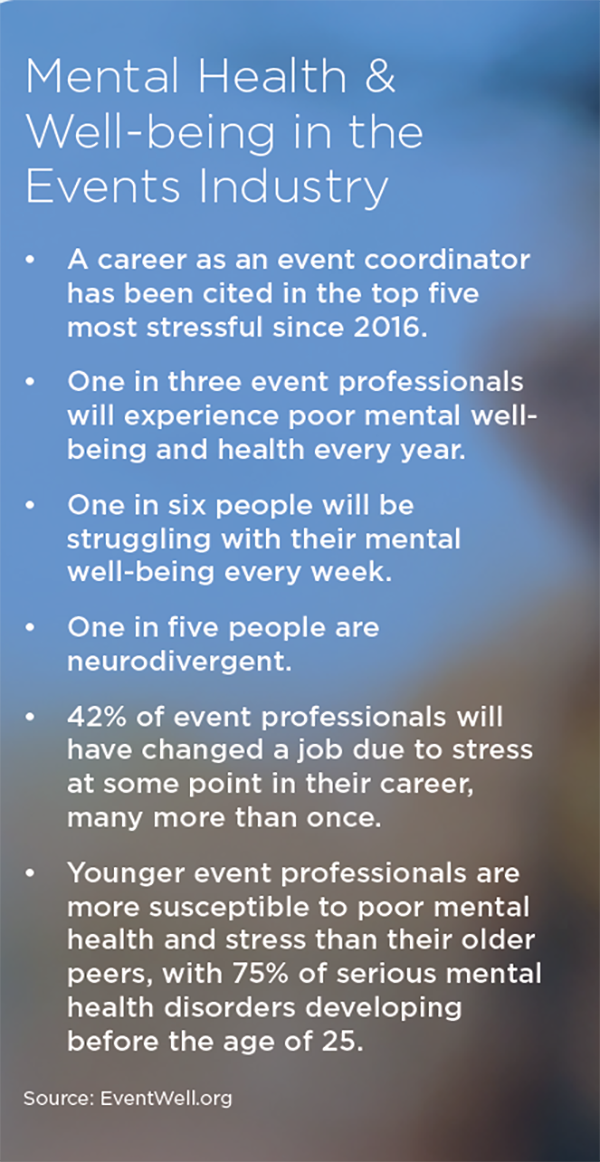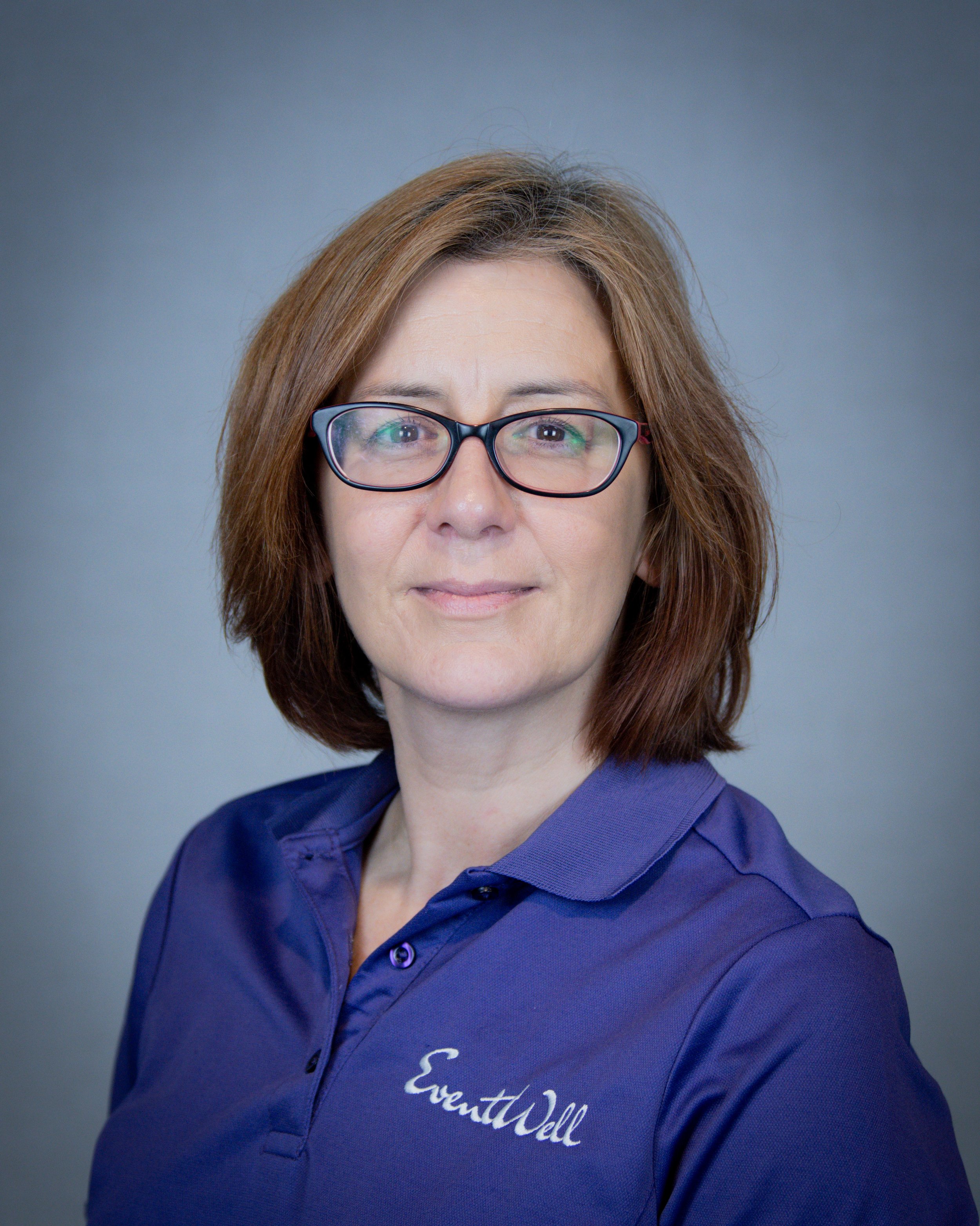ASPIRE FEATURE: Mental Well-Being for You & Your Events
We had the great privilege of connecting with Helen Moon, Founder and CEO of EventWell, an industry-leading provider of well-being services and support for event attendees and professionals. EventWell’s motto is that “every event should be a place where every soul feels welcome.” We hope this interview gives you valuable insights into how to care for the mental well-being of event attendees, your team, and yourself.
What common stressors and mental health challenges do event planners face?
Event planners have to juggle multiple events and budgets, not to mention a wide-ranging team of professionals that includes contractors and volunteers. Event planning comes with high pressure and tight deadlines. Event planners have to be able to react to last-minute changes, which can impact their personal lives. This heady combination of stress can lead to anxiety, exhaustion, and reduced professional efficacy.
What are some important self-care practices that event planners can incorporate into their daily routines?
Event planners can utilize a number of self-care practices before, during, and after the event they are planning. These include scheduling regular breaks both in the office and on the event site. A great break would be to get outside. Nature and fresh air are great ways to boost your mood and realign the senses.
How can event planners support the mental health of their staff & volunteers?
The thought of supporting the mental health of others sounds like a huge task and can seem daunting. It is actually easier than you may think and, with a few changes, can create a happier, healthier work environment. Things such as encouraging open lines of communication where your staff and volunteers feel comfortable discussing their concerns or stressors, with regular check-ins so any issues can be addressed early in the process. Managing the workload and expectations by creating clear roles and responsibilities with realistic expectations is another way to help support the mental health of everyone involved in the event, from planning to execution.
What is neuroinclusivity, and what does it look like in event spaces?
Neuroinclusivity is about ensuring there is a welcoming and accommodating environment for all attendees of events, no matter their neurological differences. Neuroinclusivity is about making events accessible to individuals with varying sensory sensitivities and cognitive differences alongside other neurological conditions. These can be through the use of supervised quiet spaces that offer sensory-friendly accommodations and have a mental health first aider on hand, should the need arise for mental health crisis support.
How can event planners provide resources and support for attendees' mental well-being?
The best way for event planners to provide the right resources and support for attendees is to talk to neuroinclusion specialists such as EventWell, who can perform an event check at the start of the event planning process and provide everything needed to create a neuroinclusive event.
What is an example of an event that provided exceptional mental health support for attendees?
There are a number of great examples of mental health support for event attendees; however, one that really stands out is the Royal Foundation Youth Forum event that took place last October on World Mental Health Day. The attendee audience included vulnerable adults and young people, all of whom were greeted with a fully sensory accommodated space, which was supervised by two mental health first aiders and included a range of sensory soothing activities and space for quiet decompression. The quiet room served as a sanctuary for attendees, offering a peaceful and calming space where they could take a break, recharge, and prioritize their mental well-being.
Helen Moon is the Founder and Chief Executive of the award-winning not-for-profit and charitable social enterprise EventWell, the place to go for neuroinclusive and mental wellbeing-friendly event spaces. She is an event professional of 26 years with experience in event operations, business development, and event marketing. She has spent 17 years working in hotels and venues and eight years as a freelance event and operations manager. She describes herself as an AuDHD Mental Health Warrior and a qualified event manager and marketer. She is also a qualified stress management and relaxation therapist with a QLS Level 4 Diploma in Psychology (and soon Social and Child Psychology). She brings a wealth of lived experience and thought leadership on neurodiversity and mental well-being in the event industry.
To find out more about EventWell’s award-winning quiet rooms and event service, email team@eventwell.org or visit eventwell.org.




